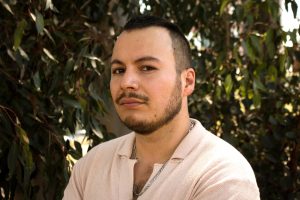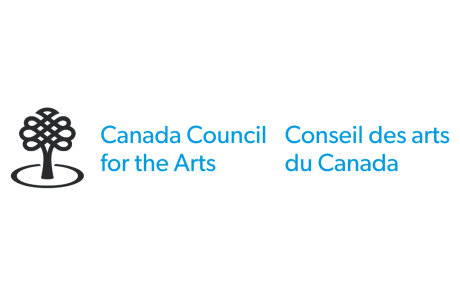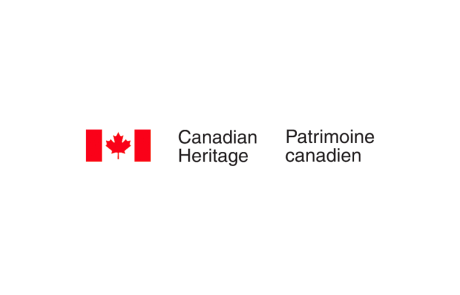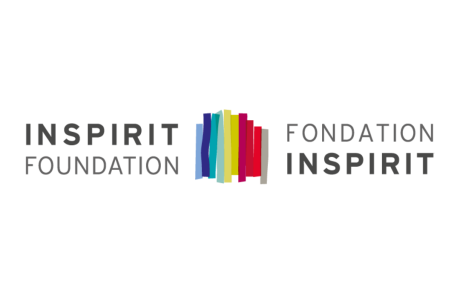The Andean Visions Of Abundance In Luciana Decker Orozco’s Film Practice
By Manuel Carrión Lira
When witnessing the work of Luciana Decker Orozco I was able to recognize a way of seeing, a particular gaze that structures life in many territories across South America. Her short film Spoils (2023) was screened on the first evening of the Analogue Resilience: Film Labs Gathering 2023, hosted by Liaison of Independent Filmmakers of Toronto (LIFT). The film caught my attention because it reminded me of home. There was an Andean view of time and iteration alive in the film that connected me to my own journey and my relatives. Decker Orozco shows a clear interest in the non-human aspect of our lives and environments and how they relate to human perception and human life. By centering the spoiled food, the green landscapes, the colonial loot of the museums, and the accumulation of wealth, she creates an anomalous archive of her experience as a Bolivian woman filmmaker studying in the US. Spoils works as an audiovisual device to materialize the feeling of being an alien, a word that Decker Orozco shared with me to describe how this film summarized her experience of entering a very different society.
The film starts with a self-portrait, positioning herself in the film. Then we see images of flowers, animals, and plants offering interesting textures and attractive colors on the screen. Very soon we start seeing plates being cleaned, where we can see a lot of food left. These images start to alternate with very short syncopated closeups of Indigenous and African origin carved statues, artifacts, and other archaeological things found in museums. We can see the protective glass on the screen. A voice sings a sad song about solitude and how a wound is still bleeding, adding a layer of melancholia and critique to the images. Then we see several stuffed birds and other animals in a naturalistic way, interchanging with the leftover food being cleaned off the plates, again at a very fast pace. Near the end we witness another self-portrait of the artist, but this time is her shadow is cast on a fossil. We don’t see her face and we realize also that we are not in a museum. We see her hands touching the fossil freely just as we saw her holding the camera at the beginning of the film. Here the camera is more relaxed and the syncopated rhythm has been left behind; we are left with closeups of the fossil and with some final shots of a green forest.
Decker Orozco uses the camera to reflect on her position, paying attention to the abundance that surrounds her, expressed in the repetitive shots that work as an inventory for animals, Indigenous artifacts, leftovers, and nature. What can be understood as an alien gaze, can best be experienced as a visuality otherwise. Decker Orozco shared with me how the alien feeling goes beyond the status of citizenship and it appears in terms of her gender and her connection to Indigenous knowledge when facing cinematic practices in academia and in the film field. Spoils can be seen as a critical diary of experiencing the accumulation of the Global North, materializing, in the film, the ways in which colonial difference operates in America.
When diving into her upcoming film project, What Humans See as Blood, Jaguars See as Chicha, a collaboration with artist and filmmaker Laura Huertas Millán in the framework of Forecast, the connections with Andean Indigenous cosmogony—particularly the Aymara worldview—are more intentional and transparent. By centering storytelling and a conception of time different from the Western-linear understanding, Decker Orozco pushes the boundaries of traditional mestizaje, centering an anti-colonial critique from the South that is concerned with ecology, sovereignty, and the non-human world as a place for building expanded kinship. Moreover, the upcoming piece uses the number four to articulate its structure of non-narration, connecting directly to many Indigenous cosmovisions from South America that use this number to organize communal life and events. Similarly to Spoils, this work honors a gaze otherwise, it is part of a continuum of reflections, sociotechnical and material negotiations that Decker Orozco frames under the ceremonial. This aspect intentionally implicates a collectivity and being part of a communal life that not only creates aesthetical outcomes. Ceremony demands accountability and responsibility with the community. The important and profound work that Decker Orozco is creating could only exist with others, and her films not only make use of representing good relations, her practice is possible because it is founded in the principle of reciprocity: an Indigenous paradigm that is not concerned with accumulation or scarcity, because reciprocity is pure abundance. Here, there is no waste because everything will be transformed.
 Luciana Decker Orozco (1993, Bolivia) is a filmmaker and artist. Currently, she delves into the spectral essence of places, objects and matter through intimate interactions and meticulous observation. She engages in this process by both revealing and concealing her presence, investigating the interstitial spaces where mediation and relationships unfold. She holds an MFA in Cinematic Arts from the University of Wisconsin-Milkwaukee and a BA in Anthropology from Universidad Católica Boliviana (UCB).
Luciana Decker Orozco (1993, Bolivia) is a filmmaker and artist. Currently, she delves into the spectral essence of places, objects and matter through intimate interactions and meticulous observation. She engages in this process by both revealing and concealing her presence, investigating the interstitial spaces where mediation and relationships unfold. She holds an MFA in Cinematic Arts from the University of Wisconsin-Milkwaukee and a BA in Anthropology from Universidad Católica Boliviana (UCB).
 Manuel Carrión Lira (he/they) is a Pikunche researcher, video-artist, and curator from Pikunmapu/Qullasuyu (Quillota, Chile). They are a PhD Candidate in Cultural Studies in Department of Literature at the University of California San Diego. Manuel holds a M.A. in Latin American Art, Thought and Culture from the Instituto de Estudios Avanzados at Universidad de Santiago de Chile, and a B.A. in Design at Universidad de Valparaíso. Member of the Catrileo+Carrión Community, where they have collectively published the books “Poyewün Nütramkan Pikunmapu/Qullasuyu” (2020), “Poyewün witral: bitácora de las tejedoras de Neltume” (2019), “Torcer la palabra: escrituras obrera-feministas” (2018) and “Yikalay pu zomo Lafkenmapu” (2018). Manuel is part of the Global Center for Advanced Studies Latin America Collective. Manuel’s work focuses on Indigenous Media at the intersection with Trans-indigenous/Transnational kinship networks beyond the nation-state framework, all of this with special attention to queer/trans/2S/epupillan Indigenous cultural production.
Manuel Carrión Lira (he/they) is a Pikunche researcher, video-artist, and curator from Pikunmapu/Qullasuyu (Quillota, Chile). They are a PhD Candidate in Cultural Studies in Department of Literature at the University of California San Diego. Manuel holds a M.A. in Latin American Art, Thought and Culture from the Instituto de Estudios Avanzados at Universidad de Santiago de Chile, and a B.A. in Design at Universidad de Valparaíso. Member of the Catrileo+Carrión Community, where they have collectively published the books “Poyewün Nütramkan Pikunmapu/Qullasuyu” (2020), “Poyewün witral: bitácora de las tejedoras de Neltume” (2019), “Torcer la palabra: escrituras obrera-feministas” (2018) and “Yikalay pu zomo Lafkenmapu” (2018). Manuel is part of the Global Center for Advanced Studies Latin America Collective. Manuel’s work focuses on Indigenous Media at the intersection with Trans-indigenous/Transnational kinship networks beyond the nation-state framework, all of this with special attention to queer/trans/2S/epupillan Indigenous cultural production.









